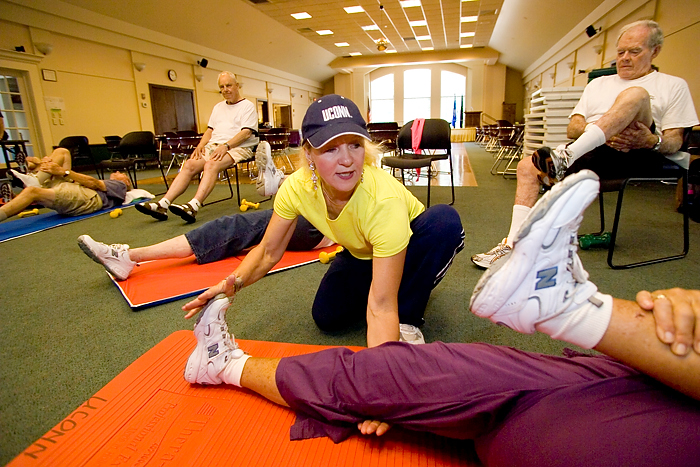A new University of Connecticut analysis of years of previous research suggests there is ample evidence that exercise may delay the decline in cognitive function associated with Alzheimer’s disease.
Aerobic exercise has possibly the most favorable effect, according to the study in the Journal of the American Geriatrics Society.
Led by Gregory Panza, a UConn kinesiology graduate student, this is the first analysis of a group of studies on a particular type of dementia – Alzheimer’s.
The authors examined data from 19 studies with 23 interventions that encompassed 1,125 participants who were at risk of Alzheimer’s. The studies were all conducted prior to August 2017 and published in peer-reviewed journals.
Approximately 5.3 million Americans are living with Alzheimer’s disease, the sixth leading cause of death in the United States. And the incidence of Alzheimer’s is expected to more than double by 2050.
Panza and his colleagues examined studies that involved exercise-only interventions; included a non-diet, non-exercise control group; and were made up of people at risk of or diagnosed with Alzheimer’s. The studies all gauged pre- and post-intervention cognitive function measurements.
The studies led to the overall conclusion that moderate-intensity exercise training about three days a week for 45 minutes resulted in modestly better cognitive function for participants.
The findings reinforce the World Health Organization (WHO) guidelines, which recommend exercise as a cost-effective lifestyle therapeutic option to improve brain health in older adults.
Panza’s co-authors include Beth Taylor, Blair Johnson, Amanda Zaleski, Jill Livingston, and Linda Pescastello, of UConn; Hayley MacDonald of the University of Alabama; and Paul Thompson of Hartford Hospital.
The work was funded by the InCHIP Healthy Habits Systematic Review Project at UConn, which is supported by a grant from the National Institutes of Health and the Department of Health and Human Services.



